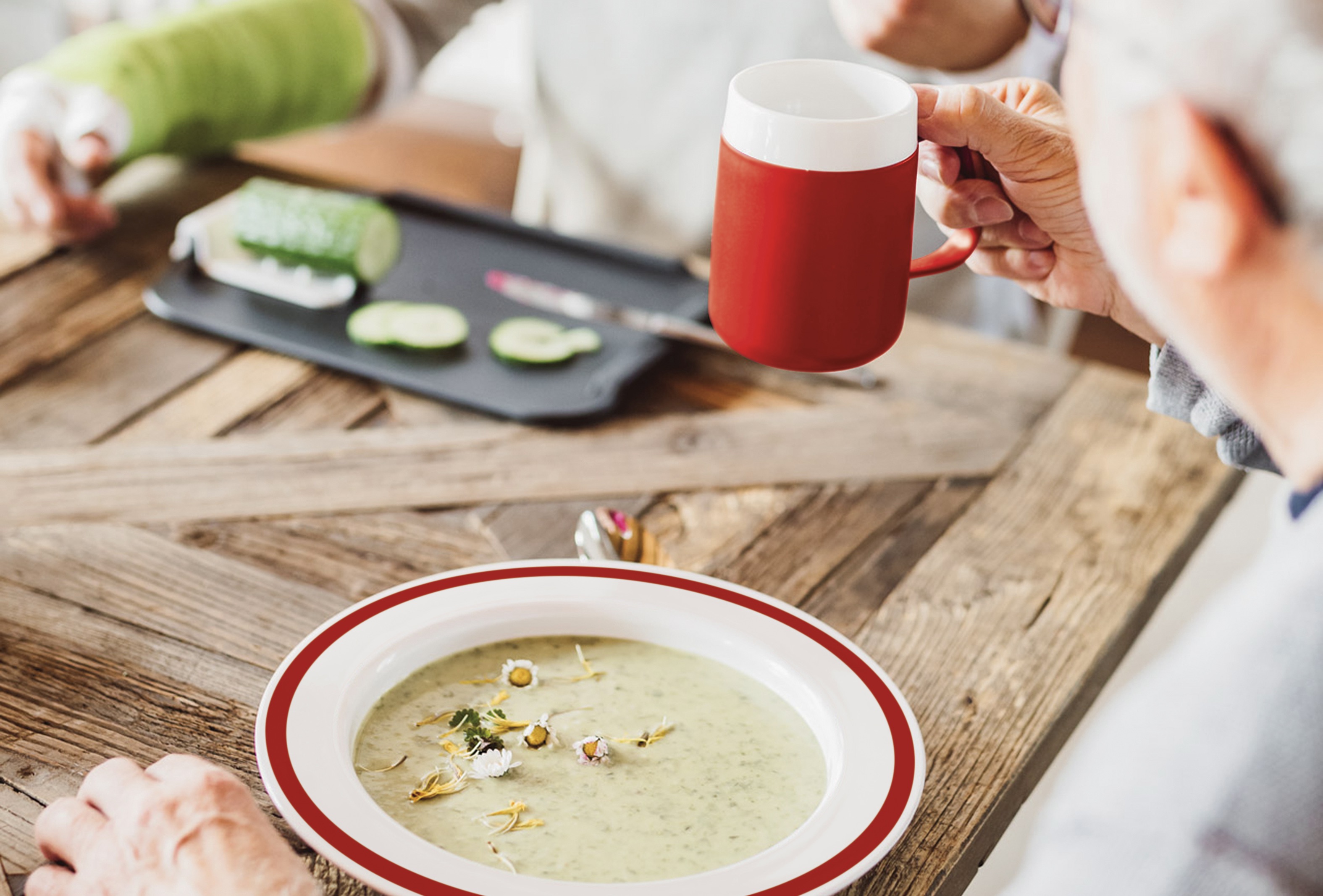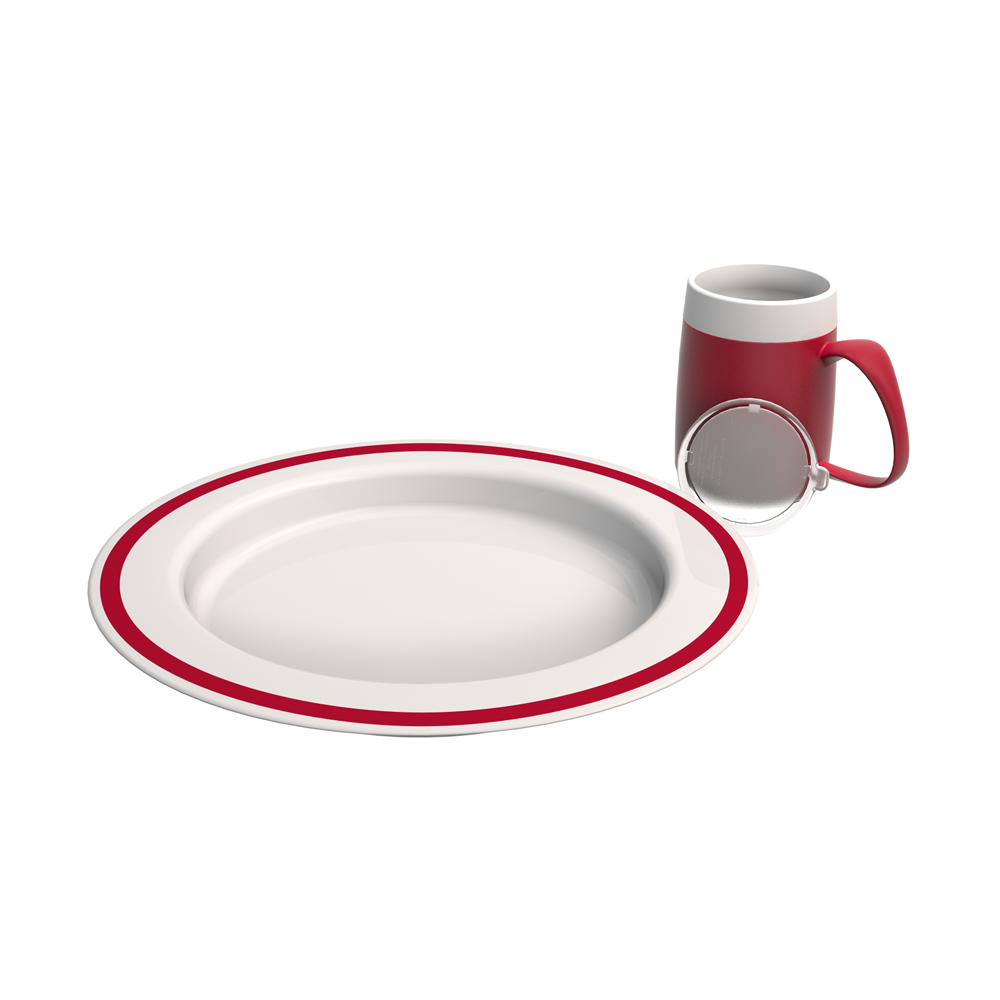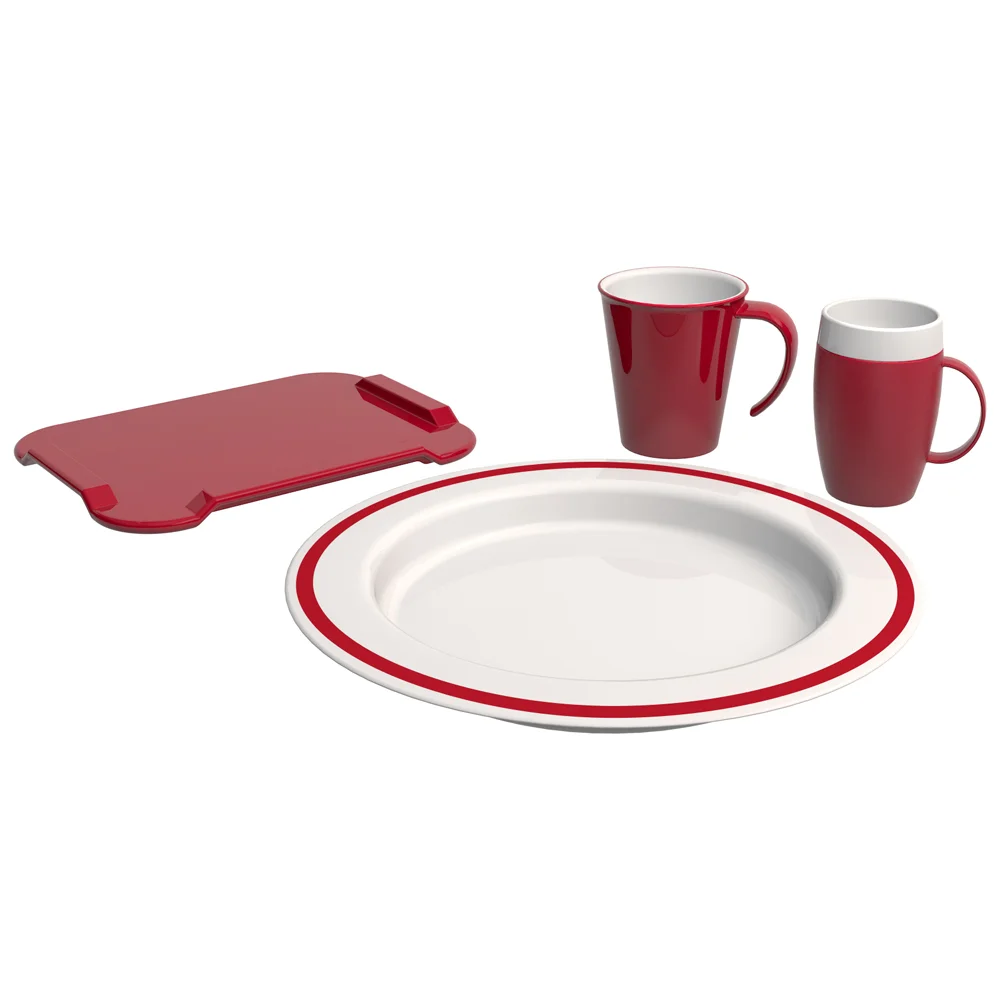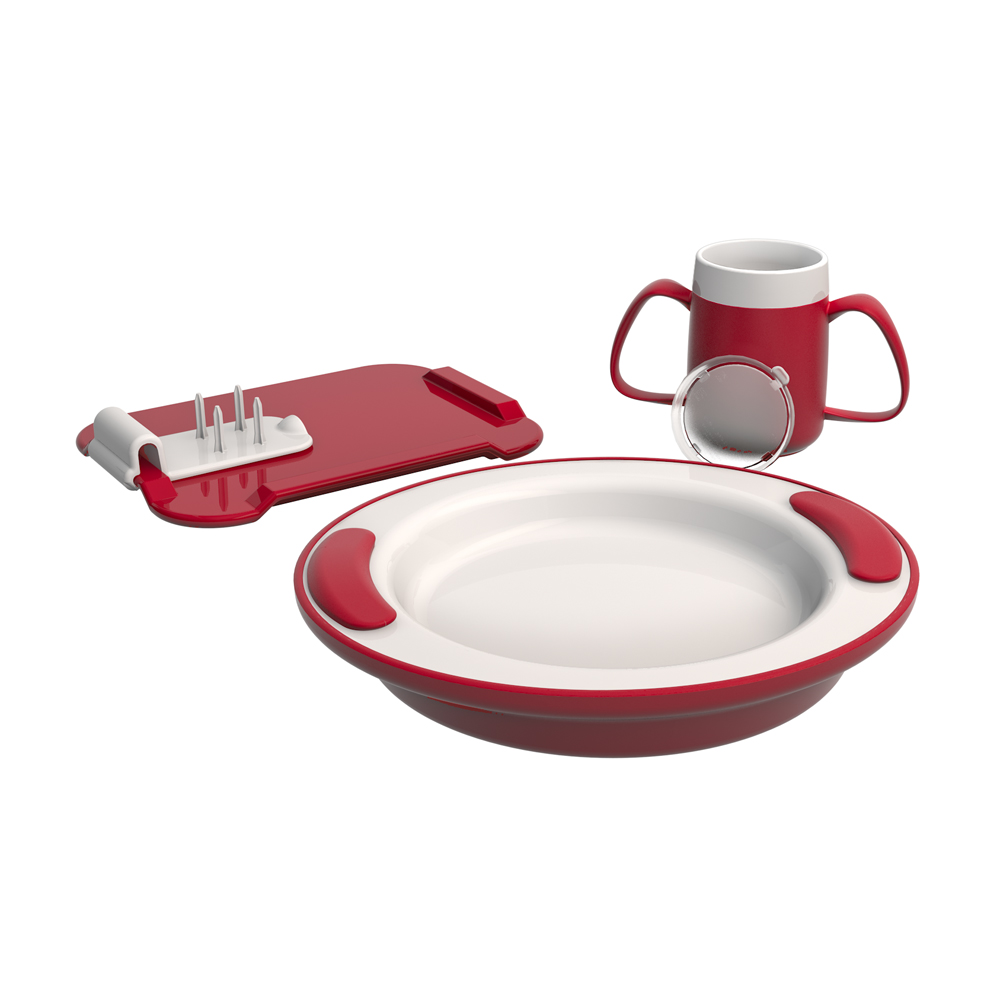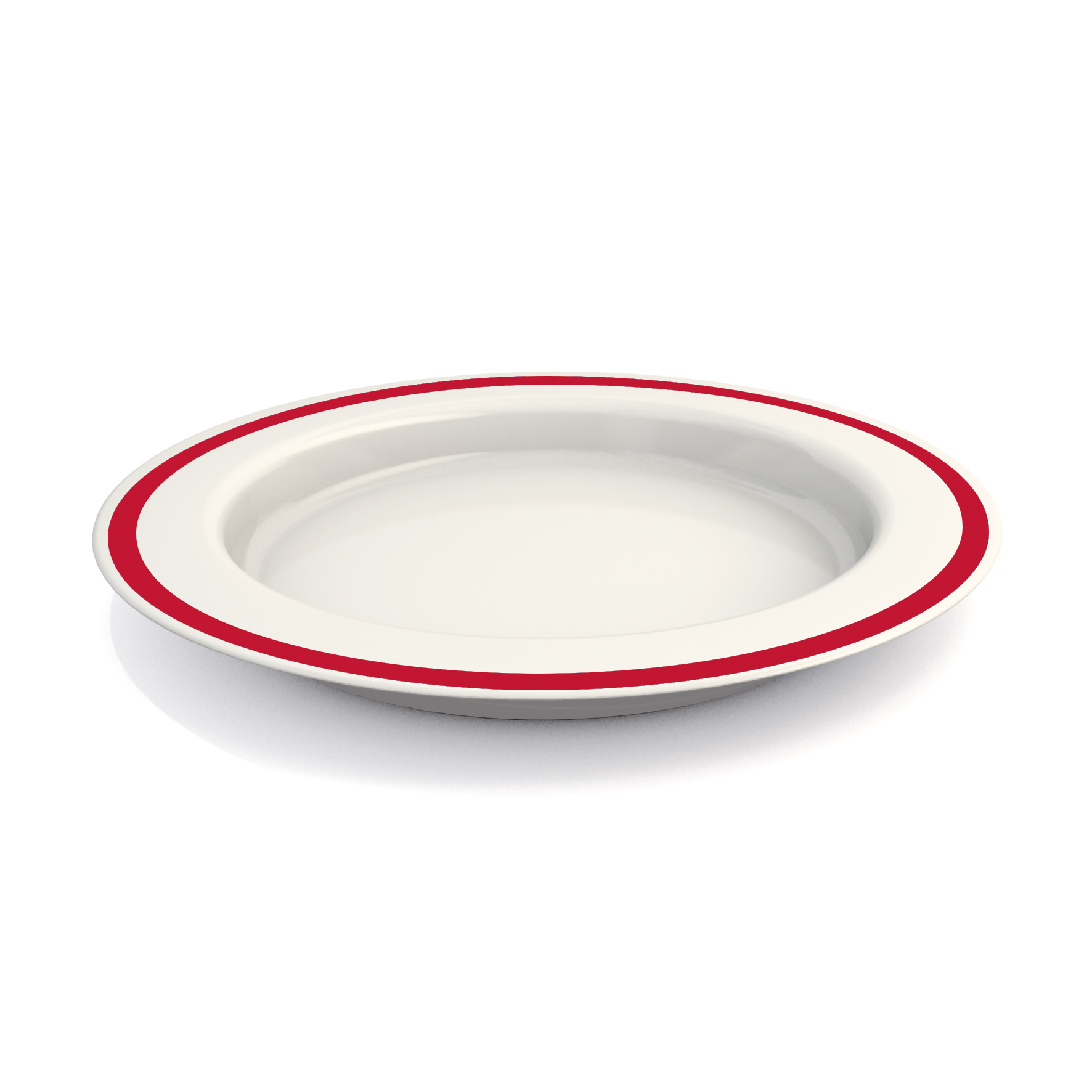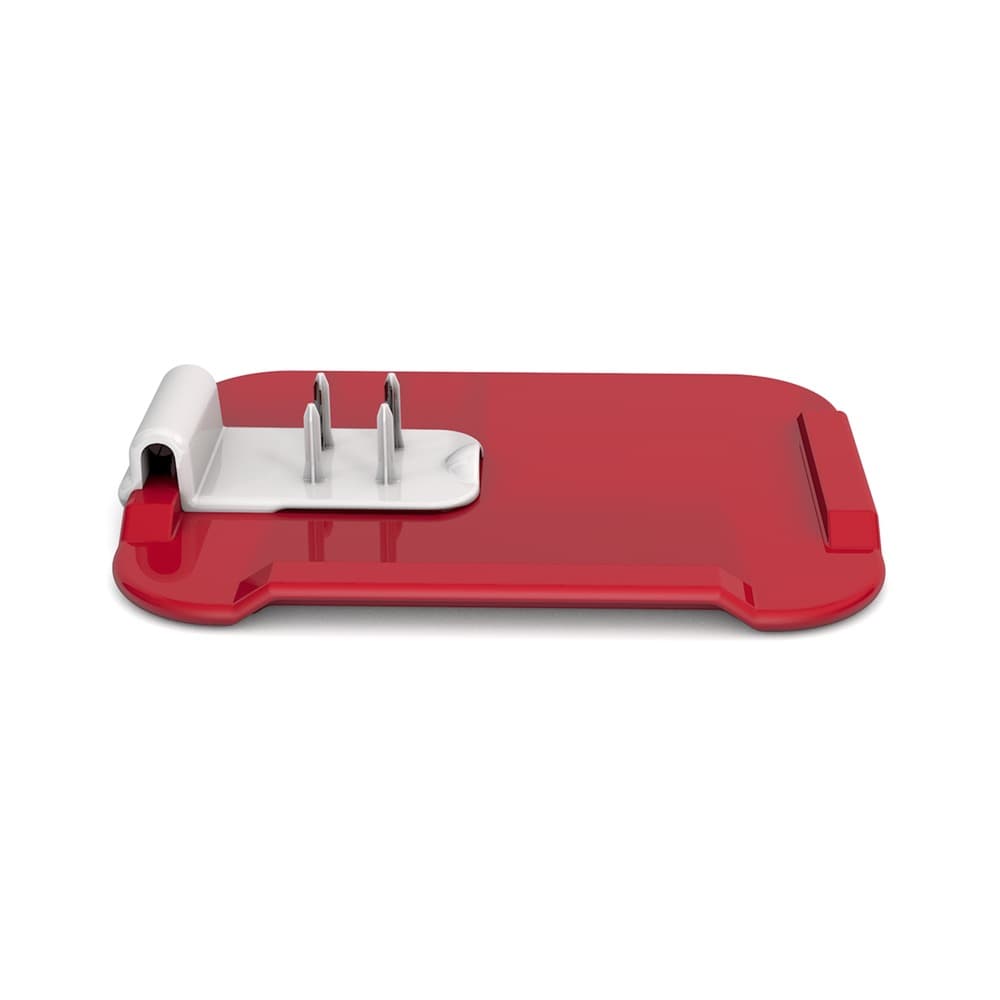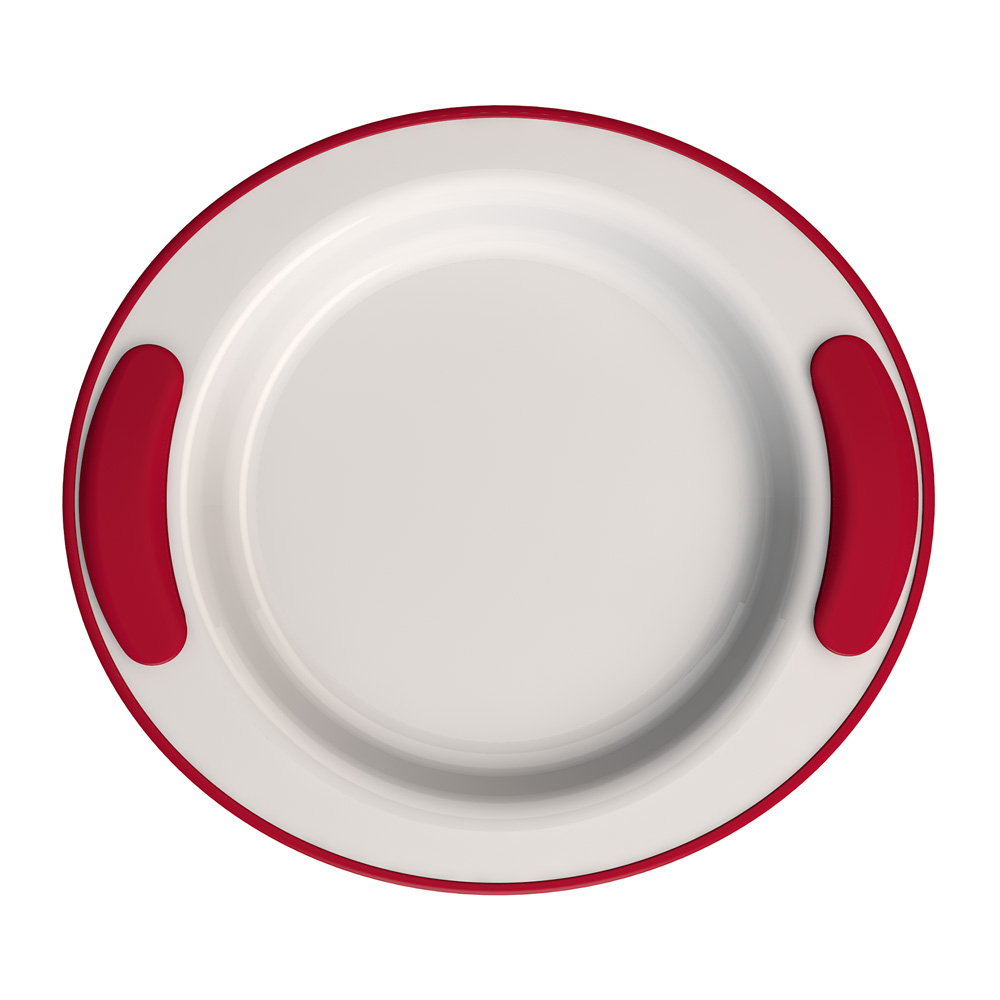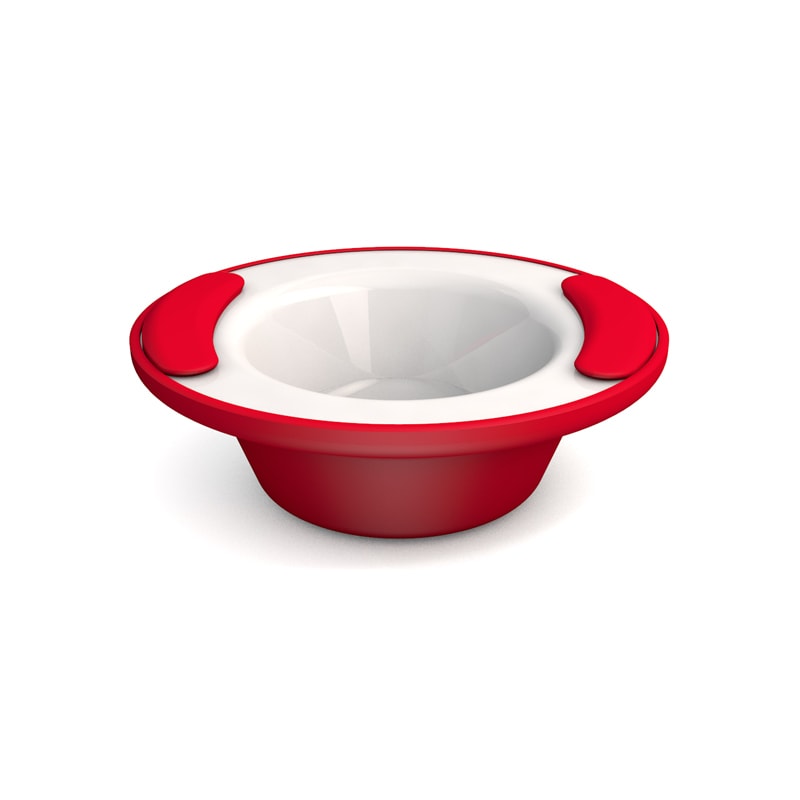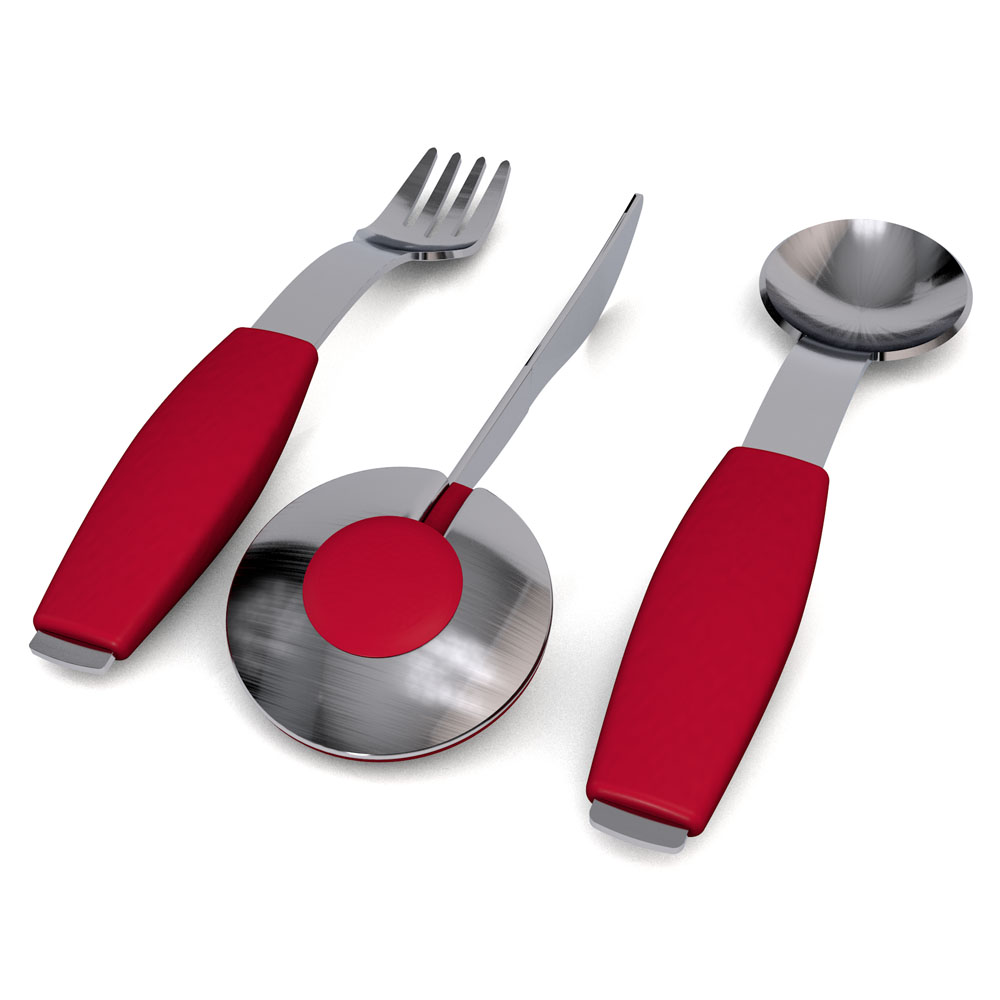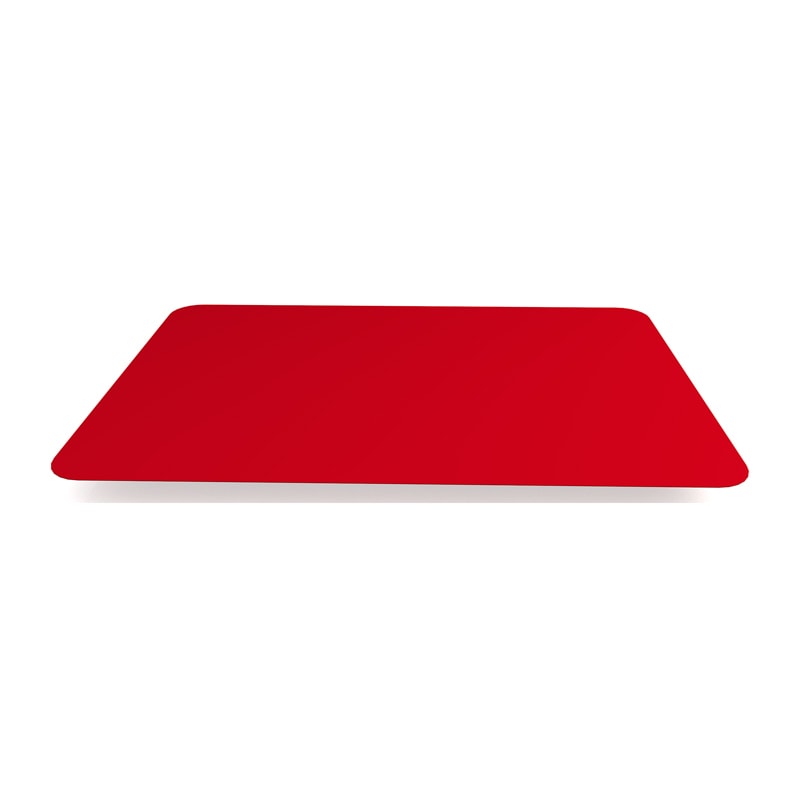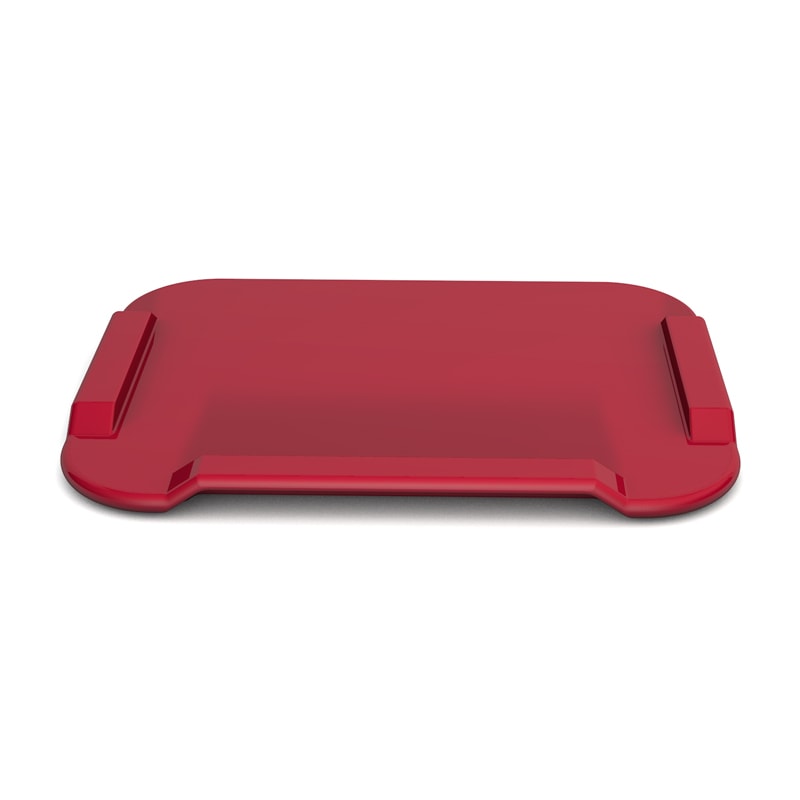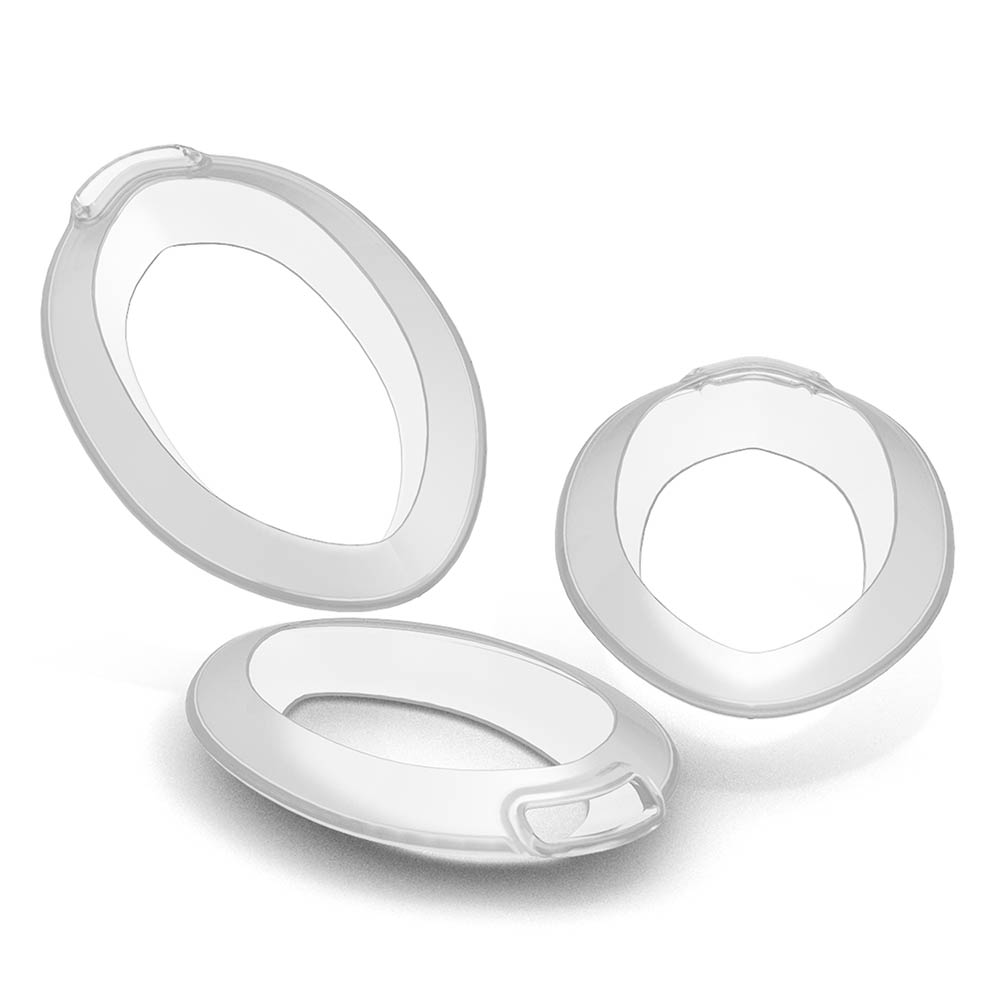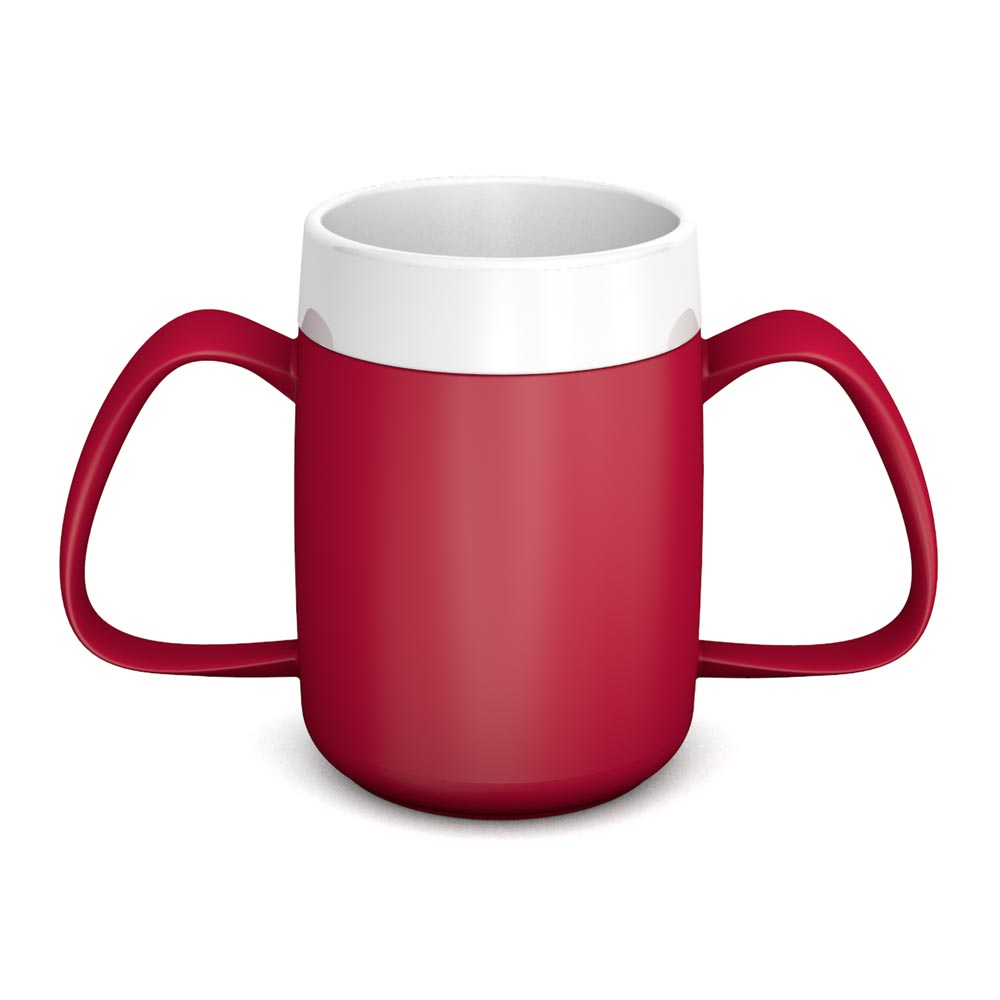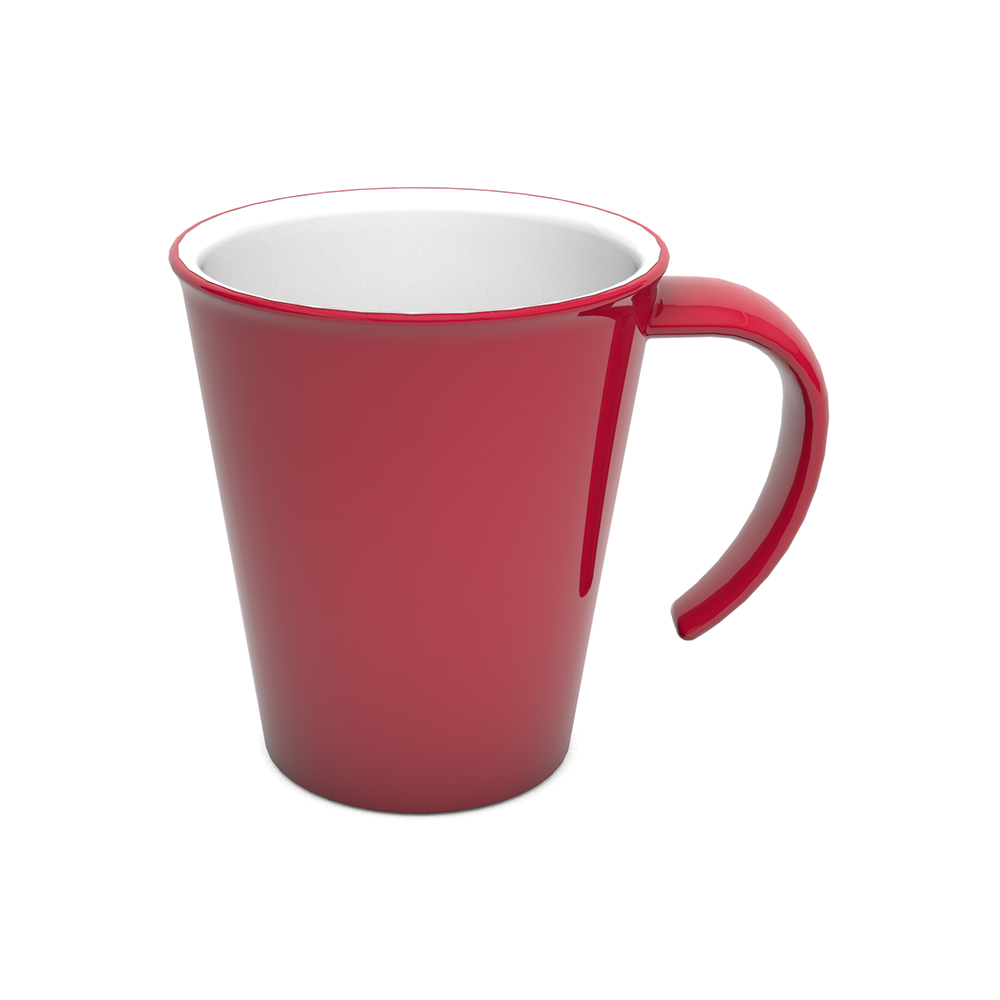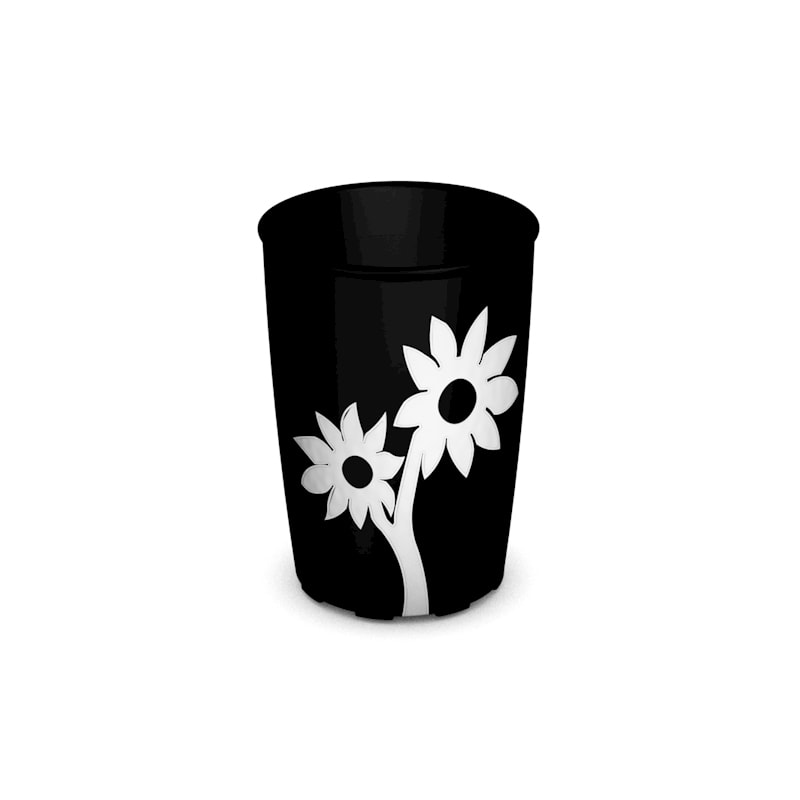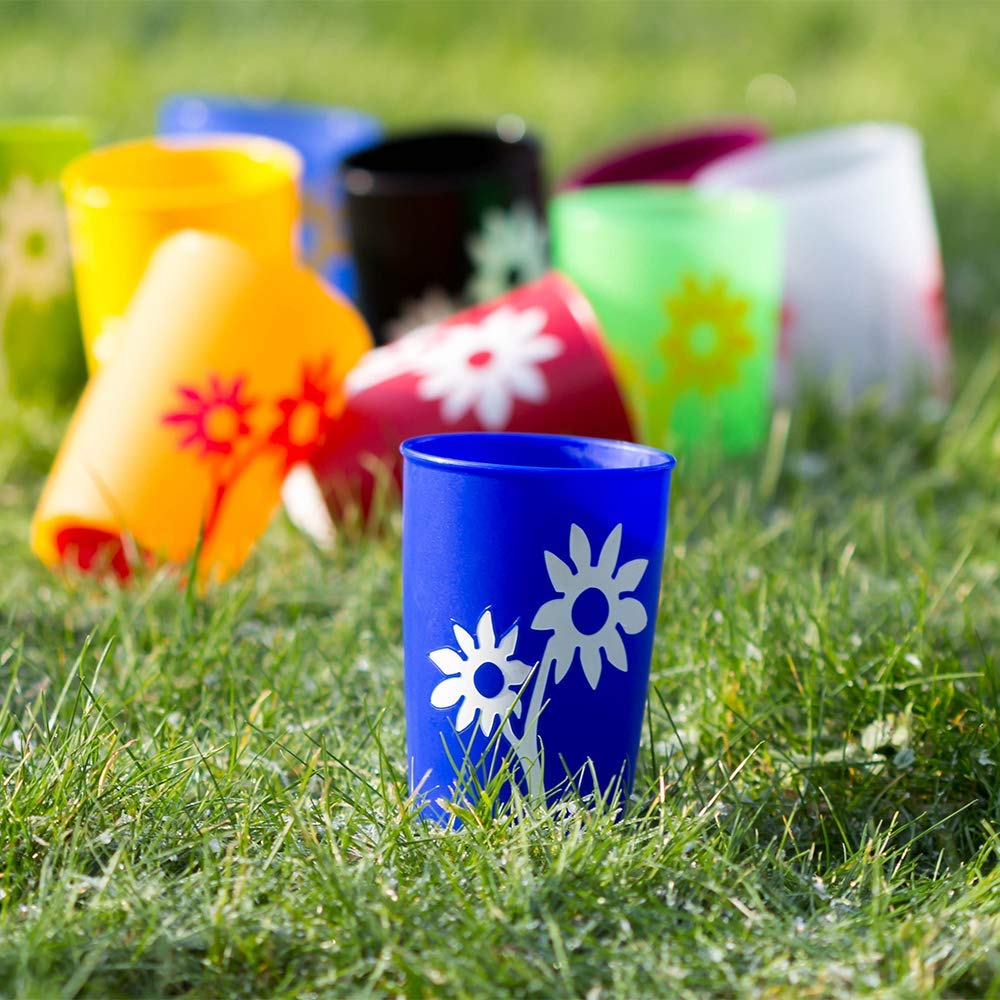DEMENTIA TABLEWARE
Sustainably independent - the red series for dementia patients

INDEPENDENT EATING AIDS
Dementia-related changes often affect appetite and food intake: When physical and mental abilities decline, eating becomes a burden for those affected. In addition, classic care dishes are often very conspicuous and lead to refusal to eat. Unobtrusive intuitive aids significantly increase the acceptance of those affected and raise their self-esteem so that they can participate in meals independently and normally. Appealing design, clear shapes and distinct colour contrasts play a decisive role in cases of declining eyesight. Because it is precisely then that colour contrasts at the dining table are particularly important. For example, a plate with a wide coloured rim provides orientation. Especially for people with dementia, red is an important colour, because it is still perceived very well in old age and stimulates the appetite.
To the Eating AidsINDEPENDENT DRINKING AIDS
People with dementia often refrain from drinking regularly, which can have many reasons. Drinking from the usually offered sippy cup is unfamiliar and very dangerous, especially with hot drinks, which leads to insecurity and rejection. Distorted colours of the drinks due to coloured cups make dementia patients sceptical. Problems caused by physical impairments such as impaired vision or motor impairments make people feel helpless and increase their lack of independence.
However, drinking is very important and should be encouraged in any case. High-contrast colours - red is recommended for dementia - support orientation at the table. White inner cups ensure unadulterated drink colours. Large handles and internal cone cups support those with physical impairments. This makes drinking possible again without stigmatisation.
